Click on the pictures to get a better view and to scroll through easier. We also have more pictures on Facebook.
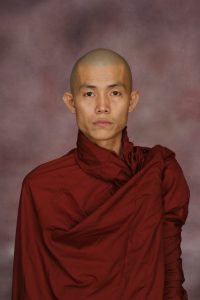 When we first arrived at the center we pulled up a roadway to what we thought would lead to a meditation building in a more secluded location. After arriving at the registration office we were guided on a tour around Thabarwa. We knew that many people were living here but it turned out that the center was pretty huge and there are around 3,500 people co-existing free of charge. They are given free dental, acupuncture, and healthcare and while volunteering you are given these benefits as well. The donations given through ALMS provide food and necessities for everyone. Over 600 pounds of white rice is cooked per day, making over 10,000 meals every day. You can read more about ALMS and other volunteer activities in the next post. The doors to Thabarwa are open to anyone and everyone, there are homeless, sick, dying, orphans and people whose families can no longer take care of them. Once the orphan children reach a certain age they become a nun or monk and at one point, they choose to continue their life as a monk or nun or go off on their own and live as an everyday Burmese person. Sayadaw Ottamasara is the Burmese monk who founded Thabarwa, his main purpose for creating the center is to have the opportunity to do good deeds and practice meditation. One night we were able to meet him, he is very humble and gentle. The fact that this center started with the sole purpose of just doing good deeds and taking care of each other truly shows the power of completing selfless acts. What was once a few small houses is now a large enough space to house thousands. There are also more of these same centers opening around the world with the same intentions. I was blown away by the fact that no one is turned away. No matter what your circumstance is, you are welcome at Thabarwa.
When we first arrived at the center we pulled up a roadway to what we thought would lead to a meditation building in a more secluded location. After arriving at the registration office we were guided on a tour around Thabarwa. We knew that many people were living here but it turned out that the center was pretty huge and there are around 3,500 people co-existing free of charge. They are given free dental, acupuncture, and healthcare and while volunteering you are given these benefits as well. The donations given through ALMS provide food and necessities for everyone. Over 600 pounds of white rice is cooked per day, making over 10,000 meals every day. You can read more about ALMS and other volunteer activities in the next post. The doors to Thabarwa are open to anyone and everyone, there are homeless, sick, dying, orphans and people whose families can no longer take care of them. Once the orphan children reach a certain age they become a nun or monk and at one point, they choose to continue their life as a monk or nun or go off on their own and live as an everyday Burmese person. Sayadaw Ottamasara is the Burmese monk who founded Thabarwa, his main purpose for creating the center is to have the opportunity to do good deeds and practice meditation. One night we were able to meet him, he is very humble and gentle. The fact that this center started with the sole purpose of just doing good deeds and taking care of each other truly shows the power of completing selfless acts. What was once a few small houses is now a large enough space to house thousands. There are also more of these same centers opening around the world with the same intentions. I was blown away by the fact that no one is turned away. No matter what your circumstance is, you are welcome at Thabarwa.
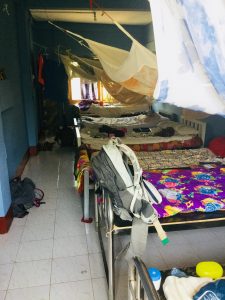 Volunteers are hosted in separate male and female dorms and provided with bed linen, mosquito nets, and security lockers. Breakfast and lunch are provided by the center and a kitchen is available for the volunteers to prepare the dinner together. Filtered water is available free throughout the center but a fellow volunteer guided us to the”cleanest” water at the center and told us we should only drink from that one. There are also several restaurants and tea shops in the center for any extra needs that you might have. Throughout the day everyone gathers to drink tea and watch the large television, even the monks. One night while Jesse and I were eating dinner and they had Titanic playing.
Volunteers are hosted in separate male and female dorms and provided with bed linen, mosquito nets, and security lockers. Breakfast and lunch are provided by the center and a kitchen is available for the volunteers to prepare the dinner together. Filtered water is available free throughout the center but a fellow volunteer guided us to the”cleanest” water at the center and told us we should only drink from that one. There are also several restaurants and tea shops in the center for any extra needs that you might have. Throughout the day everyone gathers to drink tea and watch the large television, even the monks. One night while Jesse and I were eating dinner and they had Titanic playing.
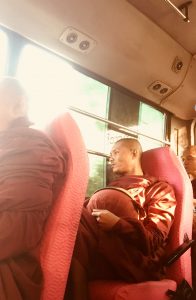 There are over 500,000 Buddhist monks in Myanmar. They wear saffron-colored or rust-colored robes and the nuns wear pink robes that represent sunshine. In order to remain a monk at a monastery, they have 227 rules to follow. I encourage you to research them, some are quite ridiculous. Many of the monks and nuns at Thabarwa are for lack of better word, rebels. They didn’t follow all of the rules so they were asked to leave their monasteries and since Thabarwa accepts all as they are, many decided to settle at the center. At first, seeing monks smoking cigars and watching T.V. made me confused, but over time it became normal. Even when Jesse and I did the ALMS you could see that during the actual act of collecting donations the monks were very proper but as soon as we got on the bus they became a little more like normal everyday Burmese people and their posture relaxed more. I began wondering what it might be like when they were altogether alone without volunteers around, just monks. A fraternity image came to mind of a bunch of guys just laughing and having a good time, minus the alcohol. Some of them even have nicer phones than all of the volunteers. With them having no income it makes you wonder where they are getting the money for a huge fancy cell phone, but I am not here to judge, I’m just speaking my observations.
There are over 500,000 Buddhist monks in Myanmar. They wear saffron-colored or rust-colored robes and the nuns wear pink robes that represent sunshine. In order to remain a monk at a monastery, they have 227 rules to follow. I encourage you to research them, some are quite ridiculous. Many of the monks and nuns at Thabarwa are for lack of better word, rebels. They didn’t follow all of the rules so they were asked to leave their monasteries and since Thabarwa accepts all as they are, many decided to settle at the center. At first, seeing monks smoking cigars and watching T.V. made me confused, but over time it became normal. Even when Jesse and I did the ALMS you could see that during the actual act of collecting donations the monks were very proper but as soon as we got on the bus they became a little more like normal everyday Burmese people and their posture relaxed more. I began wondering what it might be like when they were altogether alone without volunteers around, just monks. A fraternity image came to mind of a bunch of guys just laughing and having a good time, minus the alcohol. Some of them even have nicer phones than all of the volunteers. With them having no income it makes you wonder where they are getting the money for a huge fancy cell phone, but I am not here to judge, I’m just speaking my observations.
As you walk throughout the center you walk by buildings often hearing chanting from the nuns or meditation sessions going on with the residents. There are many buildings in Thabarwa, my favorite other than helping in the hospital buildings was the library. It was the only building at the center with air-conditioning and it was also the quietest. Since it is a meditation center you instantly think peace and quiet and a calmness that most centers have, Thabarwa is not like any place I’ve ever seen before. Between the dogs barking and the thousands of people that live there, there were only brief moments of quiet. Another perk of volunteering is that you can join in on meditation retreats for free, usually lasting about a week long. They are located in different cities in Myanmar and are focused mainly on Dhamma and meditation. So, if you are seeking silence that is a better option and transportation is provided.
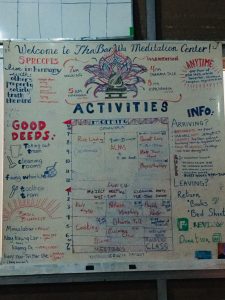 Every night at the center there is a volunteer meeting where you decide which activities you want to participate in the following day. The number of volunteers changes often, people are coming and going daily but you can have anywhere between 25-60 volunteers at a time. People from all over the world come to Thabarwa to volunteer their time and we had the chance to meet many other travelers during our 2-week stay. Typically volunteers usually stay 3-7 days and often people leave and return at a later date. Each volunteer is free to participate in any activity they want, even if they have never done it before there is always someone in charge guiding and teaching you. The main idea is to practice good deeds and to push yourself out of your comfort zone to try things that you normally wouldn’t try, simply because its the right thing to do and its needed. Volunteers can also propose and organize new projects if they have any skills that can be useful for the benefit of the center and its residents. I was told that in Burma as a foreigner if you’d like to try out being a nun or monk you can in a matter of minutes. No long process, you shave your head and slowly learn the ways. When and if you decide it’s not for you, you can pack your bags and leave. I also heard that you can buy robes off the street and disguise yourself as a monk. Majority of Burmese wouldn’t do this because they believe in Karma but it has definitely been done before.
Every night at the center there is a volunteer meeting where you decide which activities you want to participate in the following day. The number of volunteers changes often, people are coming and going daily but you can have anywhere between 25-60 volunteers at a time. People from all over the world come to Thabarwa to volunteer their time and we had the chance to meet many other travelers during our 2-week stay. Typically volunteers usually stay 3-7 days and often people leave and return at a later date. Each volunteer is free to participate in any activity they want, even if they have never done it before there is always someone in charge guiding and teaching you. The main idea is to practice good deeds and to push yourself out of your comfort zone to try things that you normally wouldn’t try, simply because its the right thing to do and its needed. Volunteers can also propose and organize new projects if they have any skills that can be useful for the benefit of the center and its residents. I was told that in Burma as a foreigner if you’d like to try out being a nun or monk you can in a matter of minutes. No long process, you shave your head and slowly learn the ways. When and if you decide it’s not for you, you can pack your bags and leave. I also heard that you can buy robes off the street and disguise yourself as a monk. Majority of Burmese wouldn’t do this because they believe in Karma but it has definitely been done before.
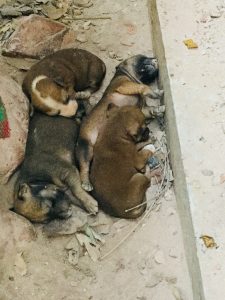 The dogs here have packs and at night they are either all howling together beautifully or fighting. Although, there are moments when it’s complete silence and everyone and everything is resting. If the dogs see you walking at night through their territory especially if it’s on the dirt paths they may circle you. They don’t like some of the Burmese people, most likely the ones that taunt them and they are still getting used to foreigners so they can be very territorial. It may be a good idea to keep an eye on the nearest stick just Incase you need to protect yourself. There are also some dogs that are very sweet. You can tell which ones are ok to touch by their wagging tails, smiles and overall posture. They are all very dirty, have fleas, scars and skin conditions but as long as you wash your hands after you have nothing to worry about. This center is a home for everyone, the sick, dying, homeless, lonely and poor and it’s interesting because even the dogs that wander in here seeking refuge may have cancer or other illnesses. Its as if they understand that this is a safe zone for them to live where they know they will be fed and taken care of. There are also some smaller puppies maybe a few months old and some newborn puppies. The momma dog with the newborns is very protective of them towards the other dogs but towards people, she is generally very sweet. They are in a special caged in area for their protection and there’s a hole in the cage that the momma can jump through to get out.
The dogs here have packs and at night they are either all howling together beautifully or fighting. Although, there are moments when it’s complete silence and everyone and everything is resting. If the dogs see you walking at night through their territory especially if it’s on the dirt paths they may circle you. They don’t like some of the Burmese people, most likely the ones that taunt them and they are still getting used to foreigners so they can be very territorial. It may be a good idea to keep an eye on the nearest stick just Incase you need to protect yourself. There are also some dogs that are very sweet. You can tell which ones are ok to touch by their wagging tails, smiles and overall posture. They are all very dirty, have fleas, scars and skin conditions but as long as you wash your hands after you have nothing to worry about. This center is a home for everyone, the sick, dying, homeless, lonely and poor and it’s interesting because even the dogs that wander in here seeking refuge may have cancer or other illnesses. Its as if they understand that this is a safe zone for them to live where they know they will be fed and taken care of. There are also some smaller puppies maybe a few months old and some newborn puppies. The momma dog with the newborns is very protective of them towards the other dogs but towards people, she is generally very sweet. They are in a special caged in area for their protection and there’s a hole in the cage that the momma can jump through to get out.
There are cats around but I rarely see or hear them fighting as much as the dogs do. They seem to creep around more and emerge from the shadows and corners of buildings. They often hang out in patients beds, locals rooms, and our dining hall area. Surprisingly I don’t think there are as many cats as there are dogs, but one is pregnant and one just had kittens not too long ago, so that could change very quickly.
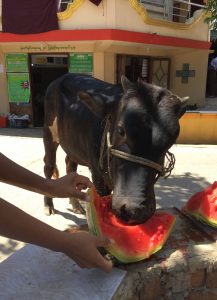 There originally was one bull that wandered in but now there are a dozen large cattle. Apparently, a rich Indian man owns them, he must live nearby because they wander in often for watermelon, bananas, and rice. They walk down the road together and often eat out of the trash or designated spots where food is left in tires for them. They come in the morning, eat and relax in the shade and then I’m assuming they make the venture back home. Although they are very large and intimidating, they are quite friendly.
There originally was one bull that wandered in but now there are a dozen large cattle. Apparently, a rich Indian man owns them, he must live nearby because they wander in often for watermelon, bananas, and rice. They walk down the road together and often eat out of the trash or designated spots where food is left in tires for them. They come in the morning, eat and relax in the shade and then I’m assuming they make the venture back home. Although they are very large and intimidating, they are quite friendly.
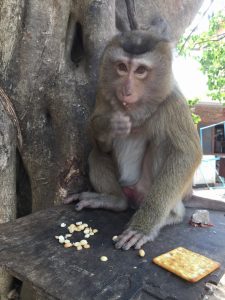 There’s one monkey, she’s chained up to a tree and throughout the day people give her food and water. It wasn’t until our third day here that I found out there was a monkey about 20 feet from our dorm. When I went to see her I saw that she was chained up and felt pretty sad for her. Apparently, the story is that she was once free and when the center began expanding she started going into rooms and throwing peoples personal belongings out the windows. They gave her one more chance and she continued, they knew she wanted to stay here at the center, probably because it was her home first, so they chained her up. I often brought her nuts, bananas, and water. Although she has her own tree house you can see that she is very bored, one time she tried taking my bracelet because it was shiny. She’s friendly but has her moments so you need to be cautious, she came at me once almost biting me after trying to give her a second drink of water. Her home is in a stressful location for her, at night and throughout the day the dogs often fight right at her tree so I think she’s beginning to have anxiety. I was so close to letting her loose, but this is one of those situations where unfortunately you have to detach and just walk away.
There’s one monkey, she’s chained up to a tree and throughout the day people give her food and water. It wasn’t until our third day here that I found out there was a monkey about 20 feet from our dorm. When I went to see her I saw that she was chained up and felt pretty sad for her. Apparently, the story is that she was once free and when the center began expanding she started going into rooms and throwing peoples personal belongings out the windows. They gave her one more chance and she continued, they knew she wanted to stay here at the center, probably because it was her home first, so they chained her up. I often brought her nuts, bananas, and water. Although she has her own tree house you can see that she is very bored, one time she tried taking my bracelet because it was shiny. She’s friendly but has her moments so you need to be cautious, she came at me once almost biting me after trying to give her a second drink of water. Her home is in a stressful location for her, at night and throughout the day the dogs often fight right at her tree so I think she’s beginning to have anxiety. I was so close to letting her loose, but this is one of those situations where unfortunately you have to detach and just walk away.
Whenever I see animals in other countries I am always hyper-aware of how they are feeling. In my opinion, there are way too many dogs at the center and more are being born monthly. I wish they understood the importance of getting dogs fixed, soon there will be 100s of dogs and I fear it could turn out badly for locals and volunteers, but I am happy they are all being fed daily.
My experience at Thabarwa had a huge impact on me, taking care of people in need filled me up with so much light and love and in a way it recharged me, reminding me even more that one of my life purposes is to help others. It’s hard to put this experience into words because it’s really something you need to experience for yourself. If you even get the opportunity and want to travel and do something positive for others I would highly recommend checking this center out, it will change you in all the right ways.

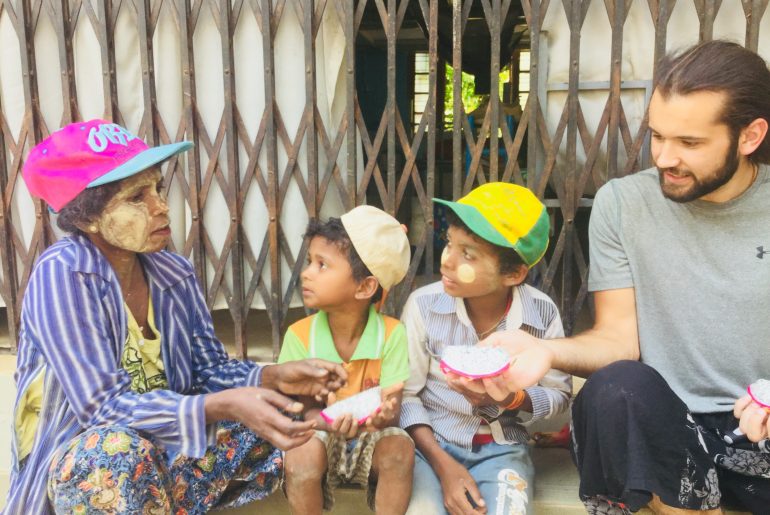
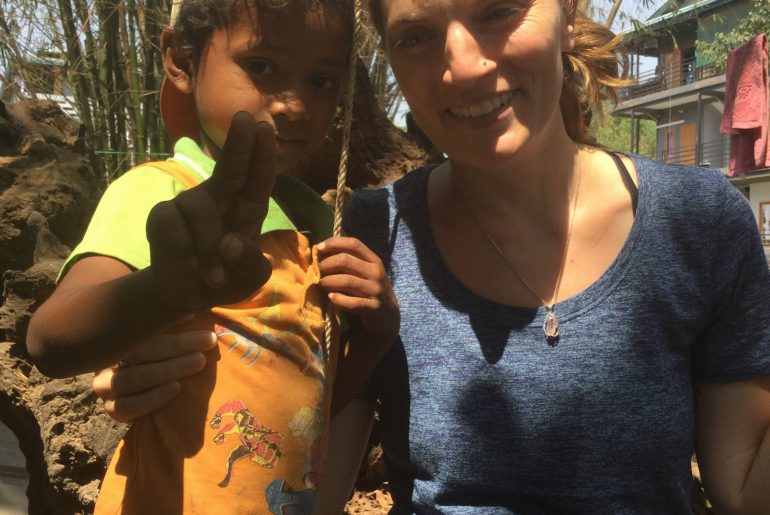
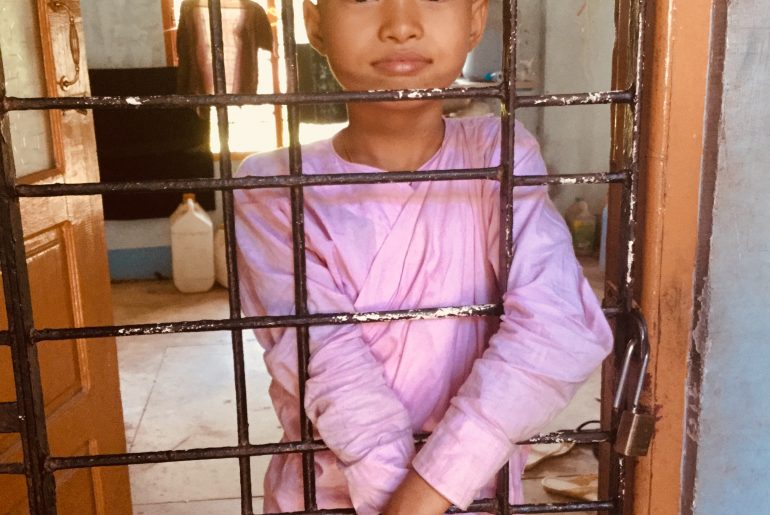
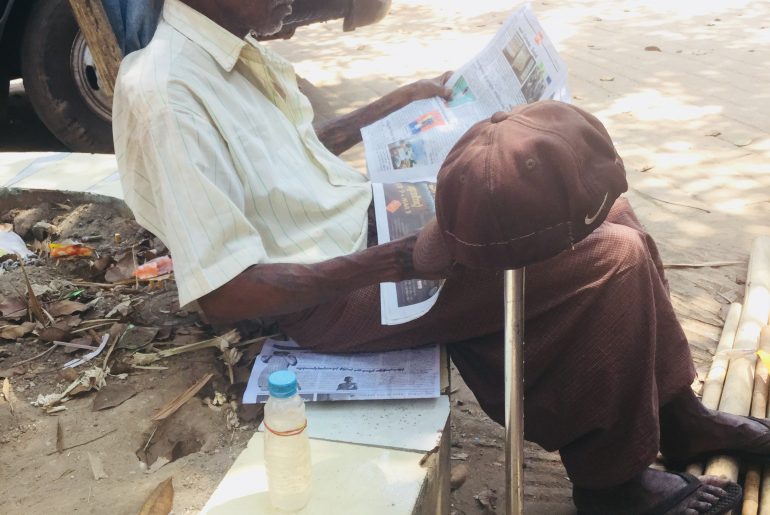
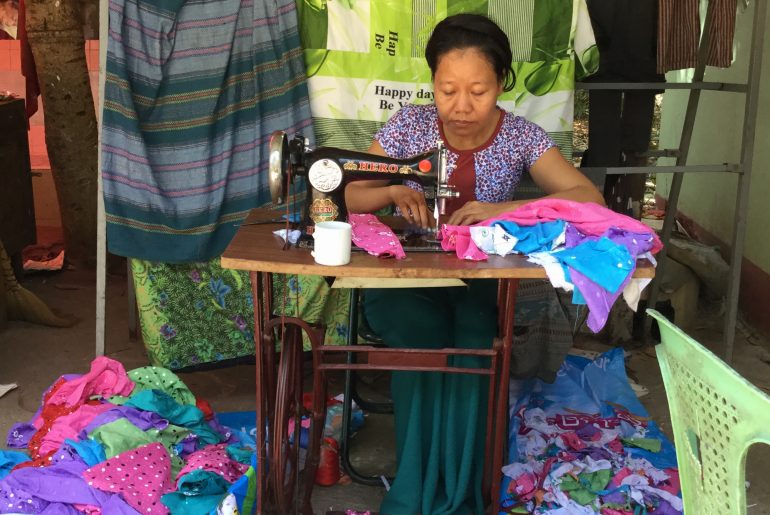
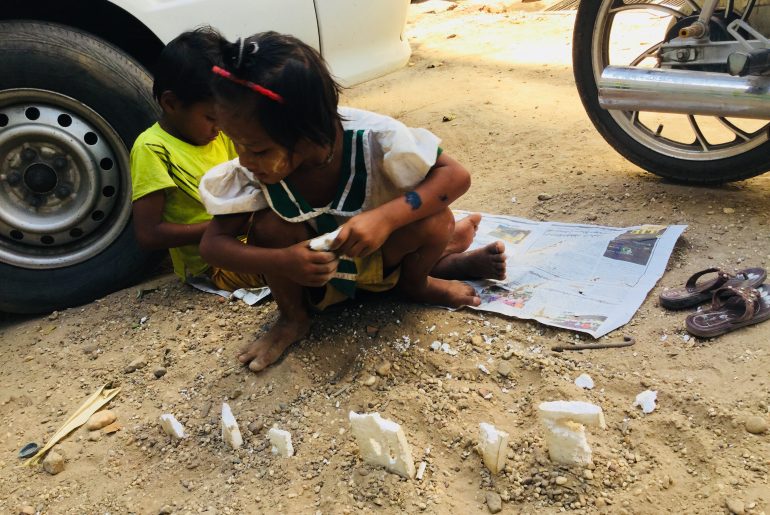
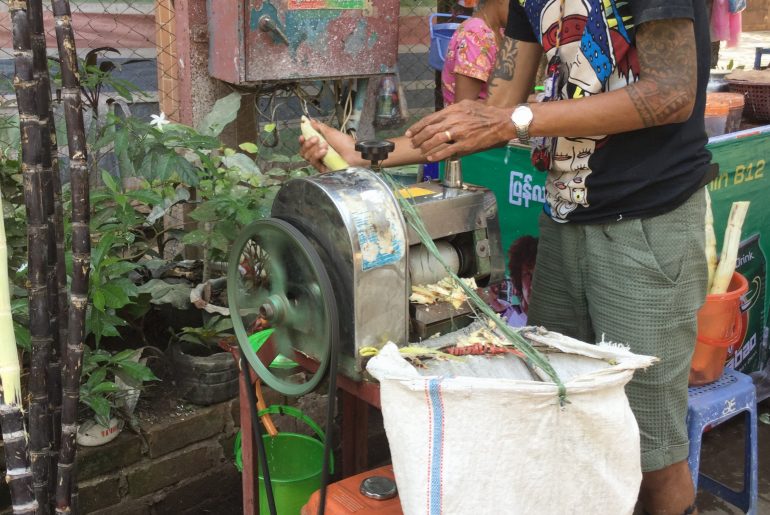
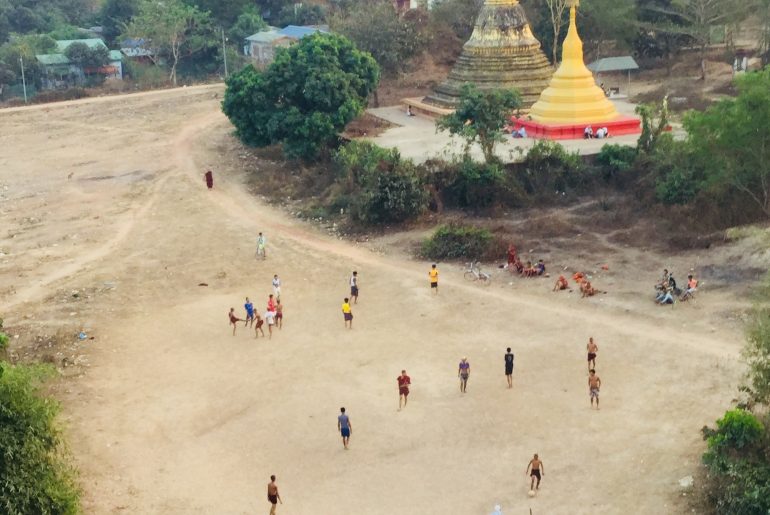
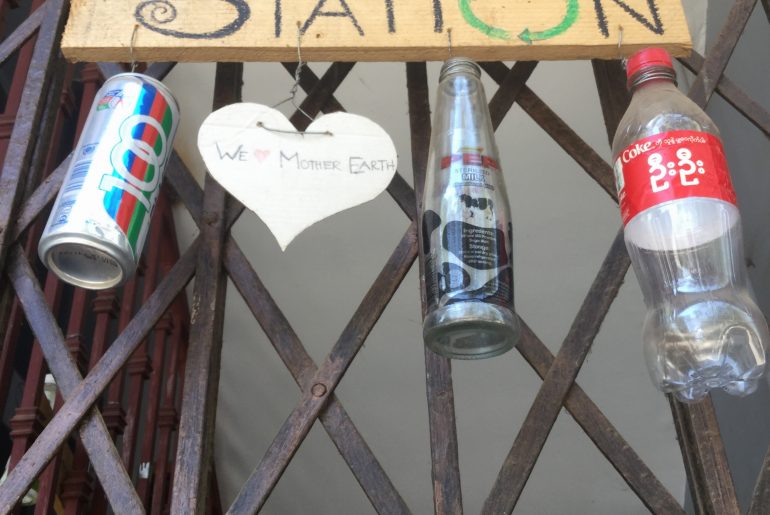
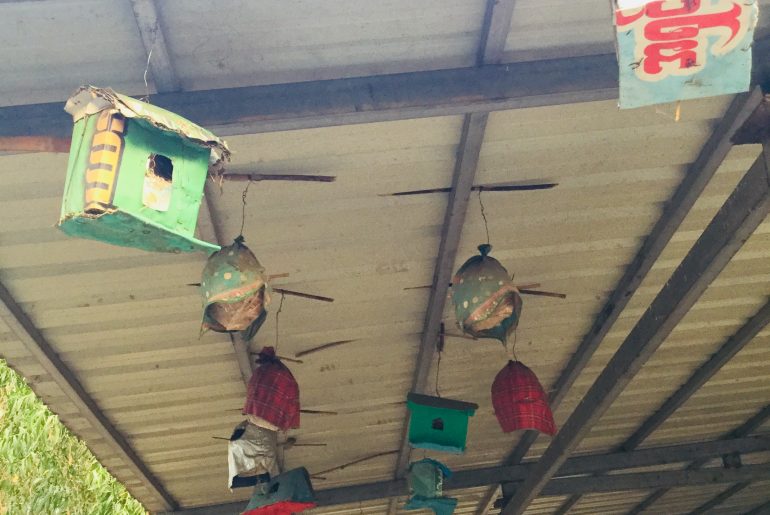
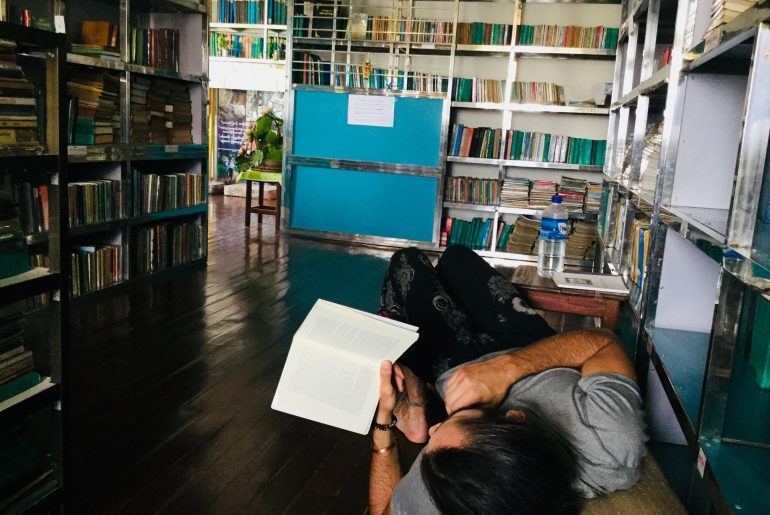
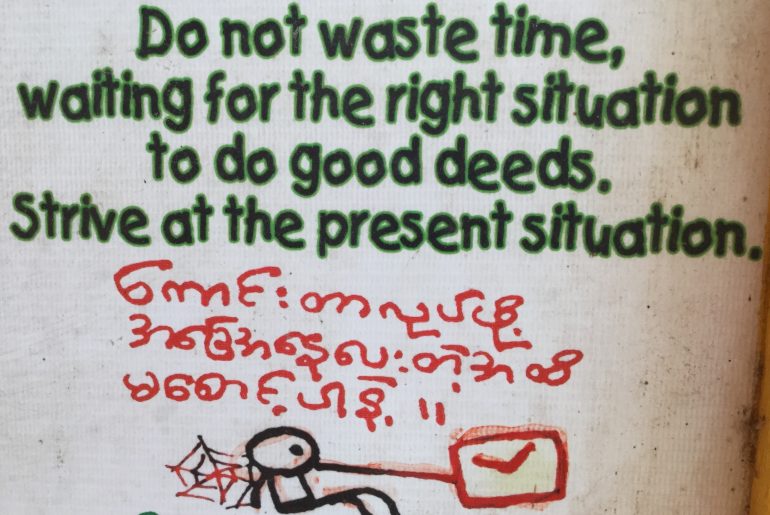
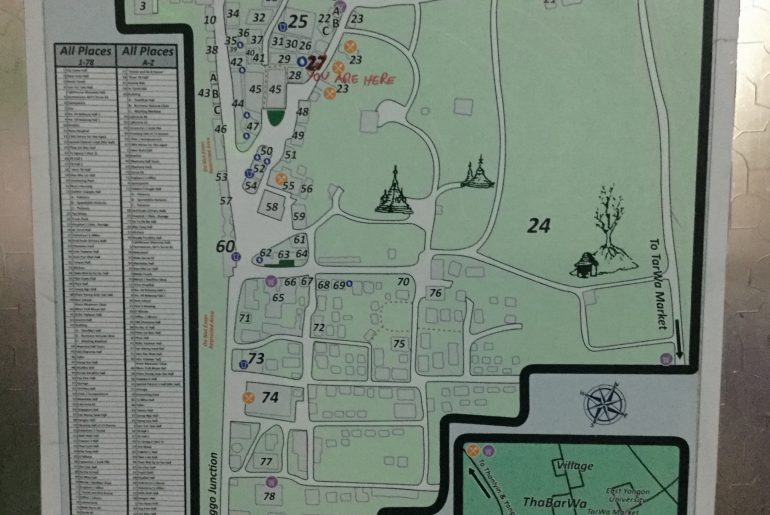
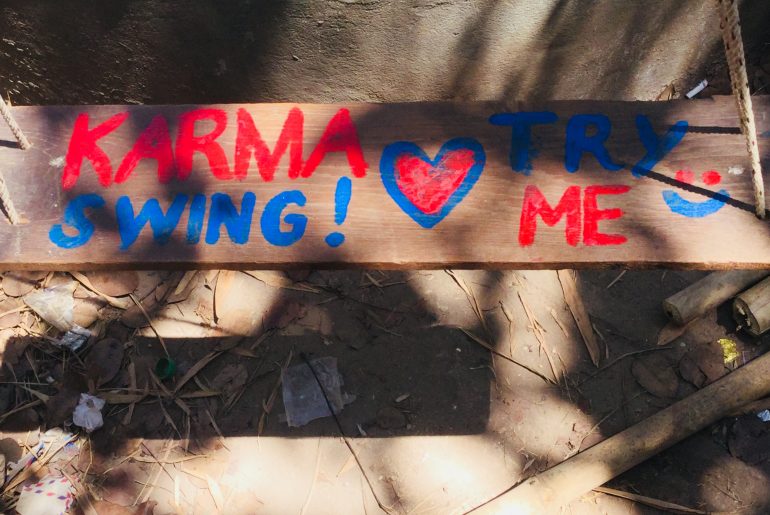
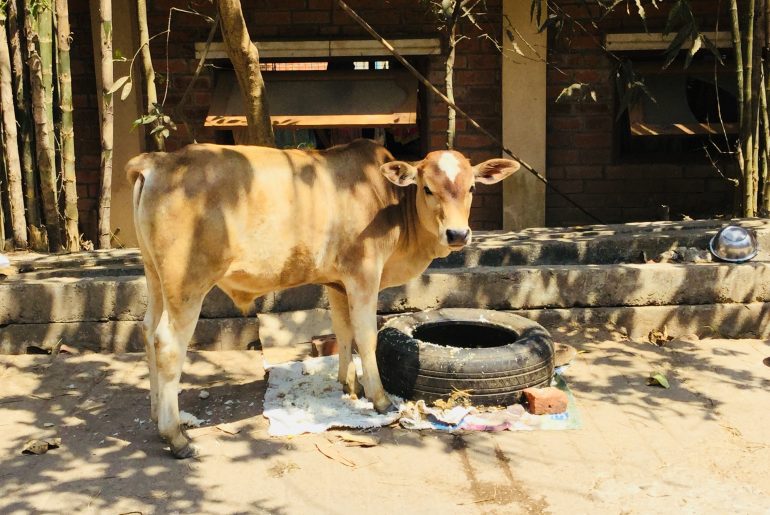
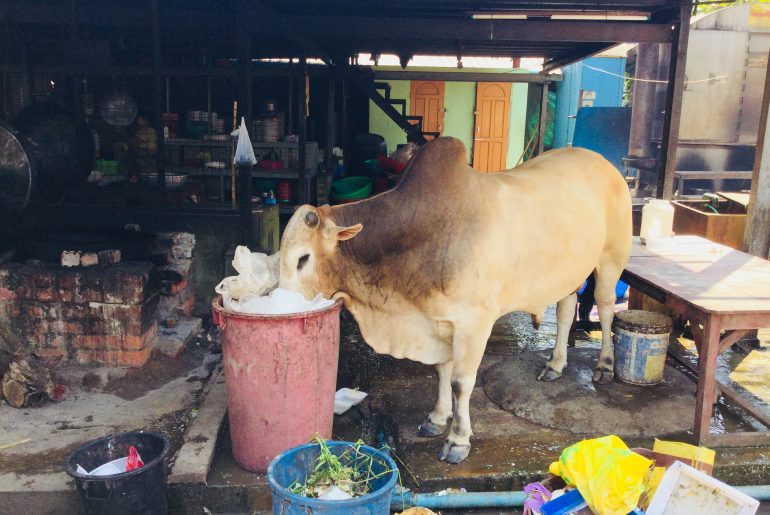
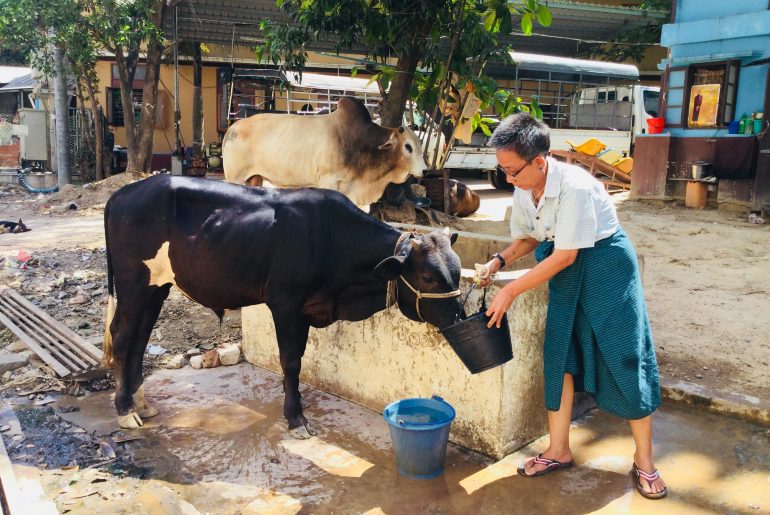
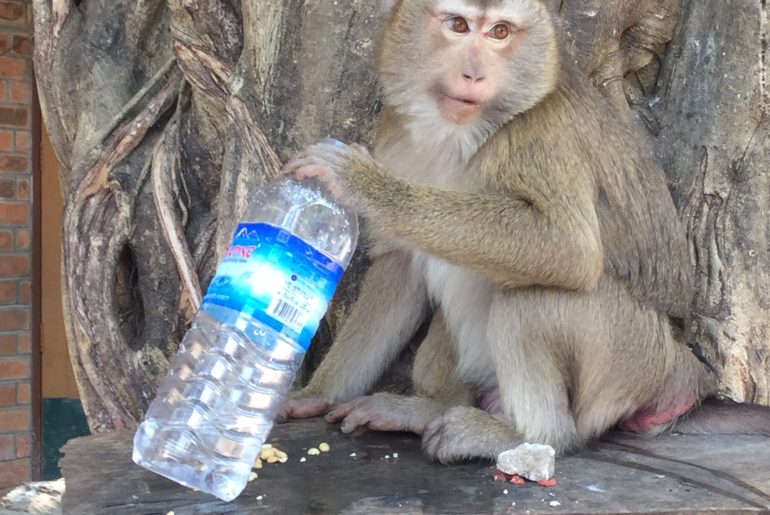
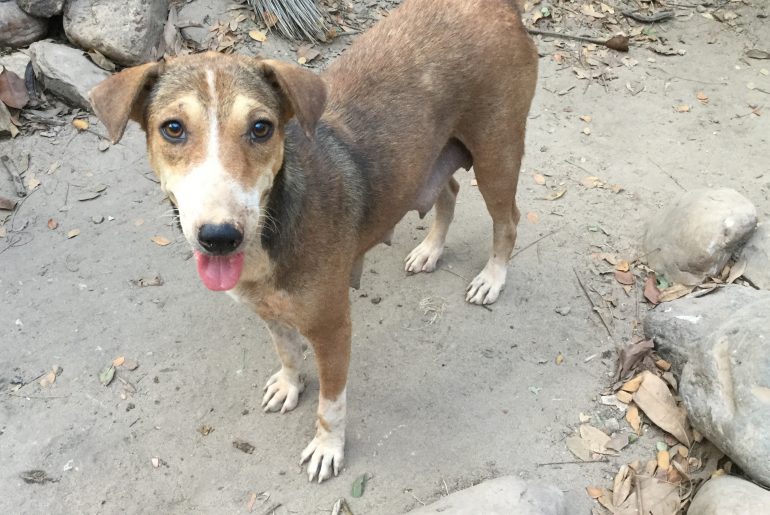
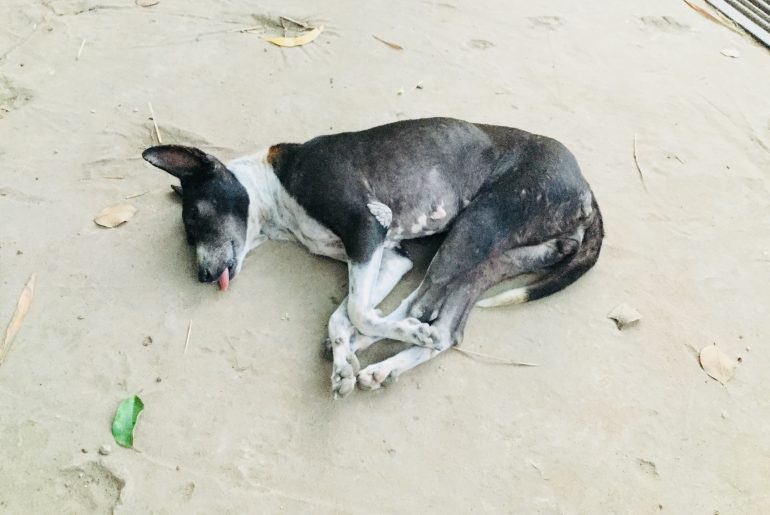
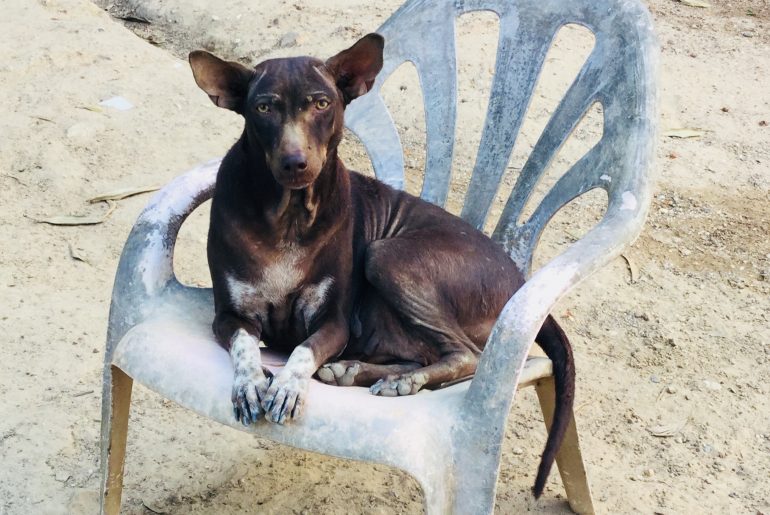
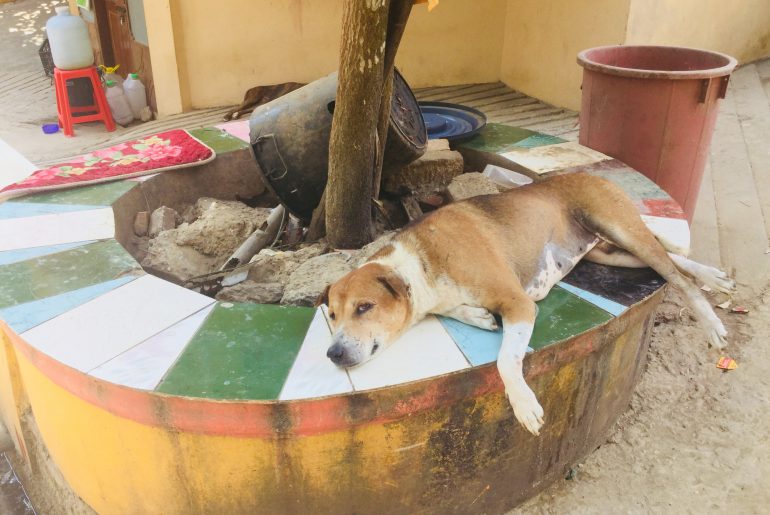
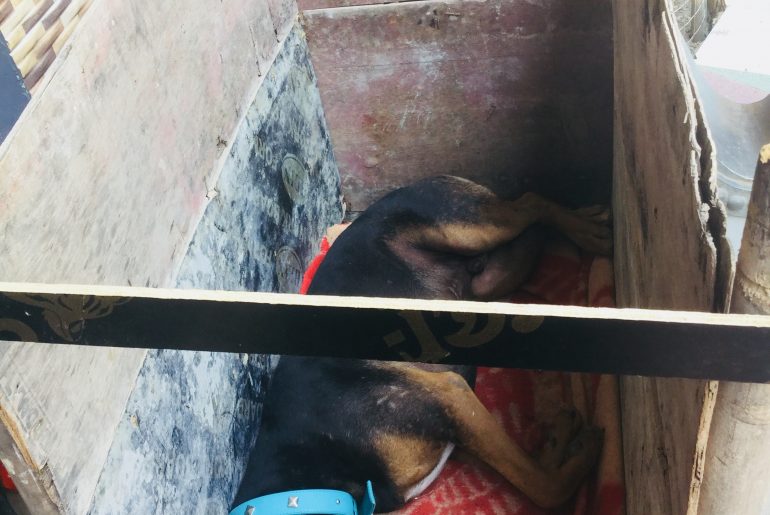
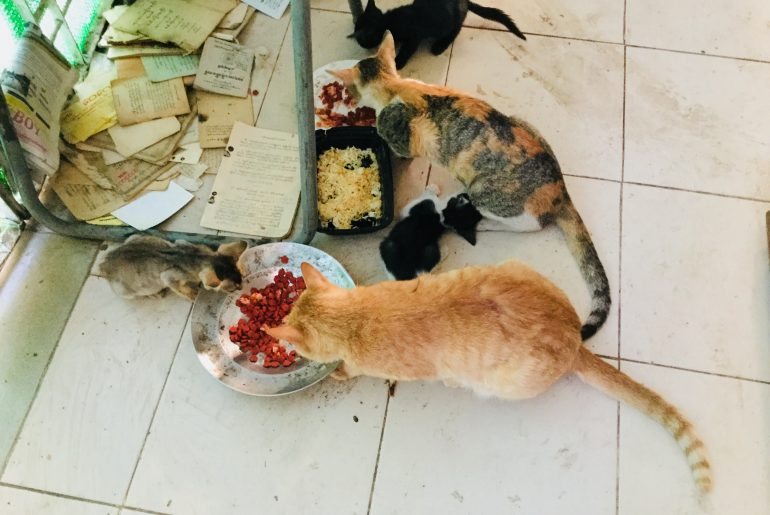
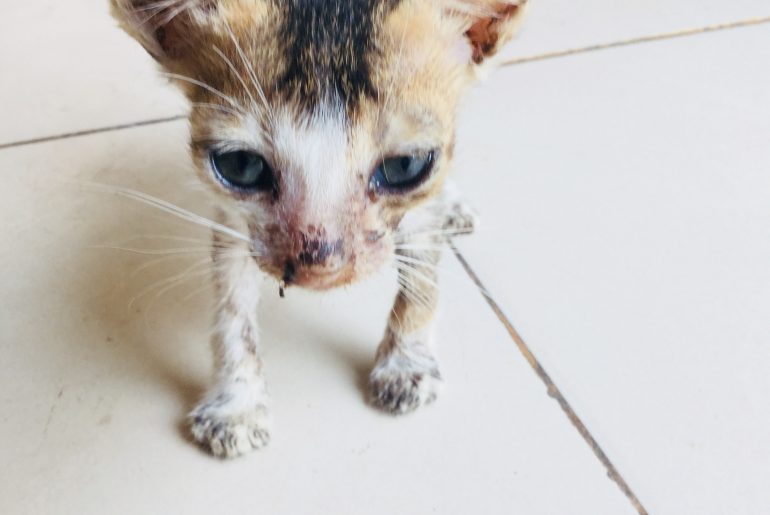
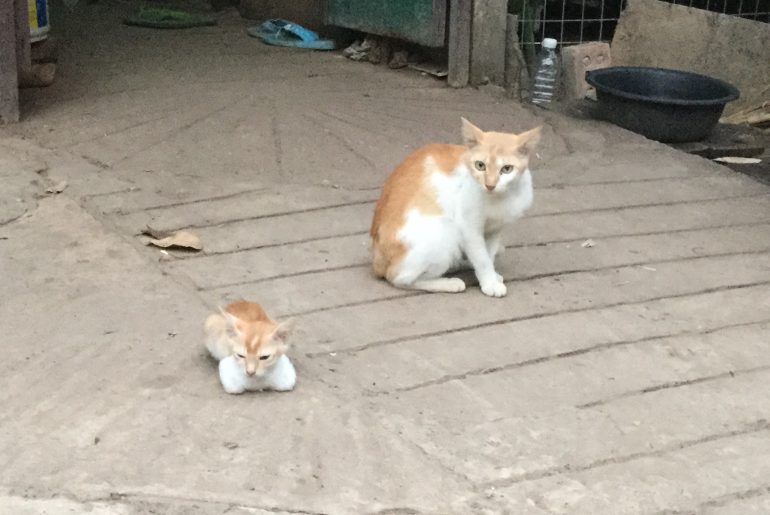
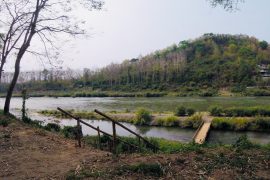

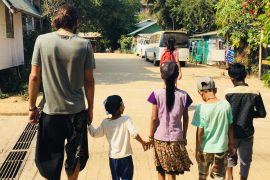
2 Comments
Can you tell me what platform are you utilizing on this site?
It’s just wordpress..i dont really add to the site anymore. I’m no longer traveling.